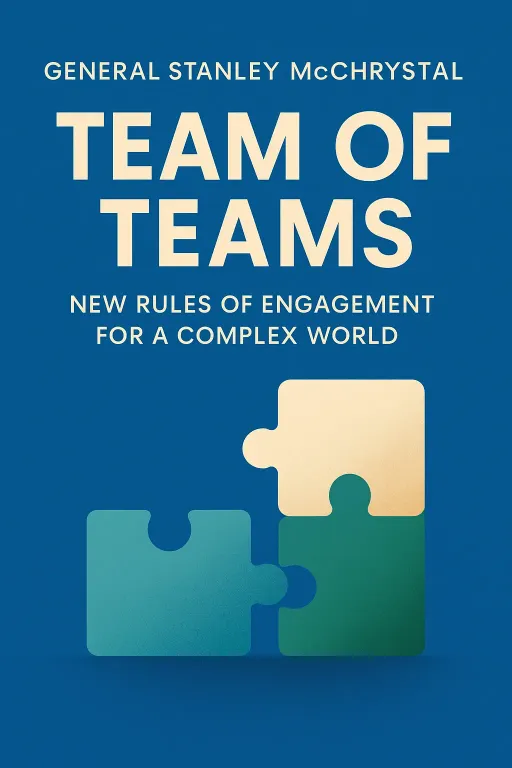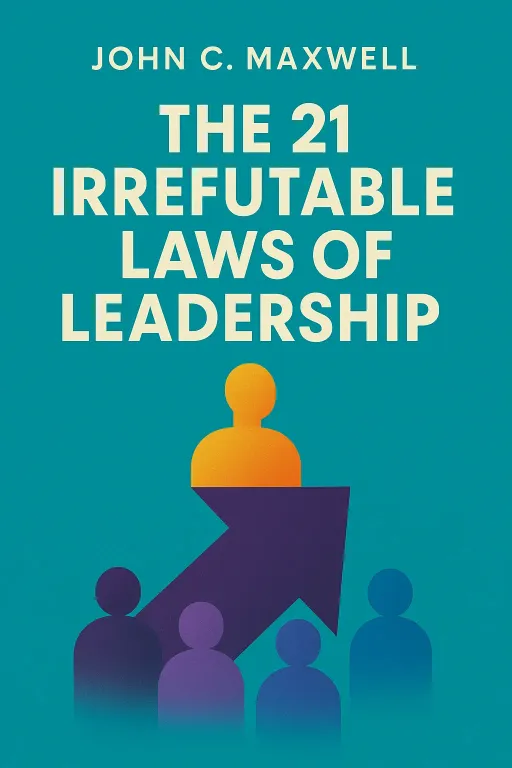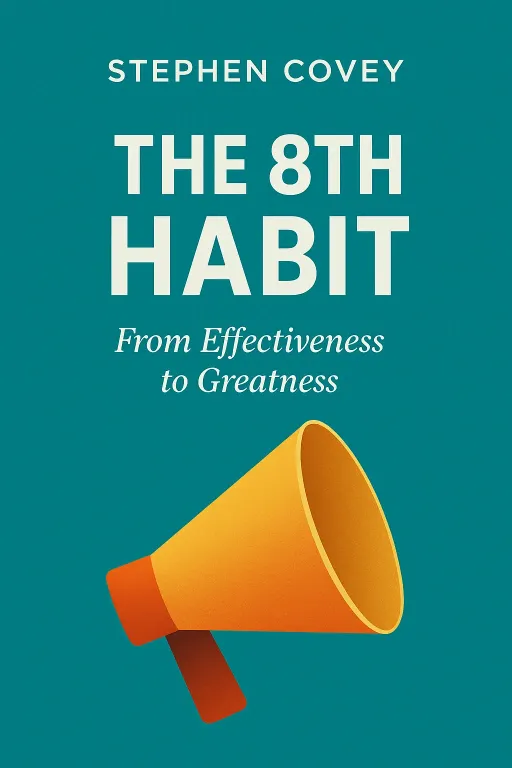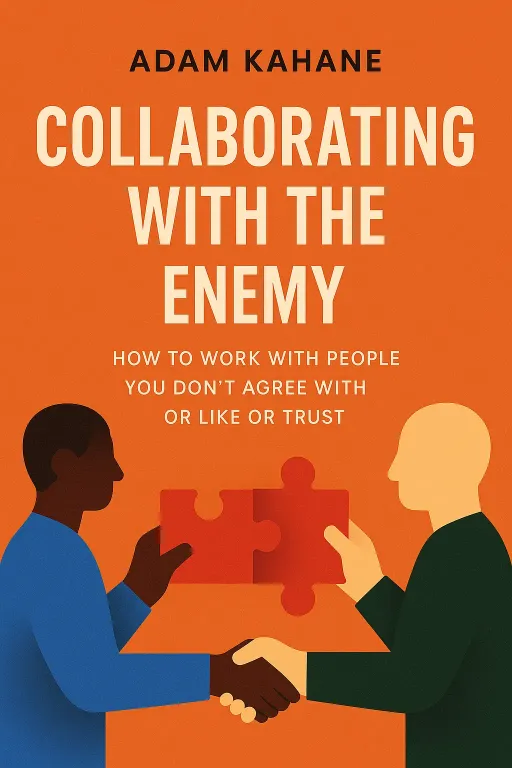
Team of Teams
General Stanley McChrystal
In a complex world, adaptability is key. General McChrystal shares the lessons he learned transforming a Task Force in Iraq into a 'team of teams,' offering insights on leadership, communication, and organizational structure applicable to any organization facing modern challenges. Discover how to foster transparency, empower individuals, and create a culture of adaptability to thrive in today's rapidly changing environment.

The 21 Irrefutable Laws of Leadership
John C. Maxwell
Discover the timeless principles of leadership that will transform your personal, family, and business life. Through real-world examples and profound insights, John Maxwell unveils the 21 irrefutable laws that every leader must follow to achieve greatness and inspire others.

The 4 Disciplines of Execution
Chris McChesney
Discover the simple, repeatable, and proven formula for executing your most important strategic priorities in the midst of the daily whirlwind. The 4 Disciplines of Execution (4DX) will help leaders produce breakthrough results, even when executing the strategy requires a significant change in behavior from their teams. Learn how to focus on the wildly important, act on lead measures, keep a compelling scoreboard, and create a cadence of accountability.

The 4 Stages of Psychological Safety
Timothy R. Clark
Explore the four stages of psychological safety and how they can be used to create a culture of inclusion and innovation. Learn how to foster an environment where individuals feel safe to learn, contribute, and challenge the status quo, leading to increased performance and happiness.

The 8th Habit
Stephen Covey
In "The 8th Habit," Stephen Covey builds upon the principles of "The 7 Habits of Highly Effective People" to address the challenges of the new Knowledge Worker Age. This book provides a roadmap for finding your voice and inspiring others to find theirs, leading to fulfillment, passionate execution, and significant contribution in both work and life.

The Agile Leader
Simon Hayward
In 'The Agile Leader', Simon Hayward provides a blueprint for creating an agile organization in the digital age. This book explores how leaders can foster innovation, adapt to rapid changes, and drive success by embracing agility, challenging the status quo, and empowering teams. Discover how to navigate the complexities of the modern business landscape and thrive in an era of constant disruption.

Collaborating with the Enemy
Adam Kahane
In 'Collaborating with the Enemy,' Adam Kahane explores how to work effectively with people you don't agree with, like, or trust. Drawing on his extensive experience in conflict resolution and social change, Kahane offers a practical guide to navigating complex situations and achieving progress even when collaboration seems impossible. This book challenges conventional approaches to collaboration and provides a fresh perspective on how to bridge divides and create positive change.

The Coaching Habit
Michael Bungay Stanier
Unlock the potential of your team and revolutionize your leadership style with 'The Coaching Habit.' Discover seven essential questions that will help you break free from overdependence, overwhelm, and disconnection, fostering a culture of focus, courage, and resilience. Learn how to coach in ten minutes or less and transform everyday interactions into opportunities for growth and impact.